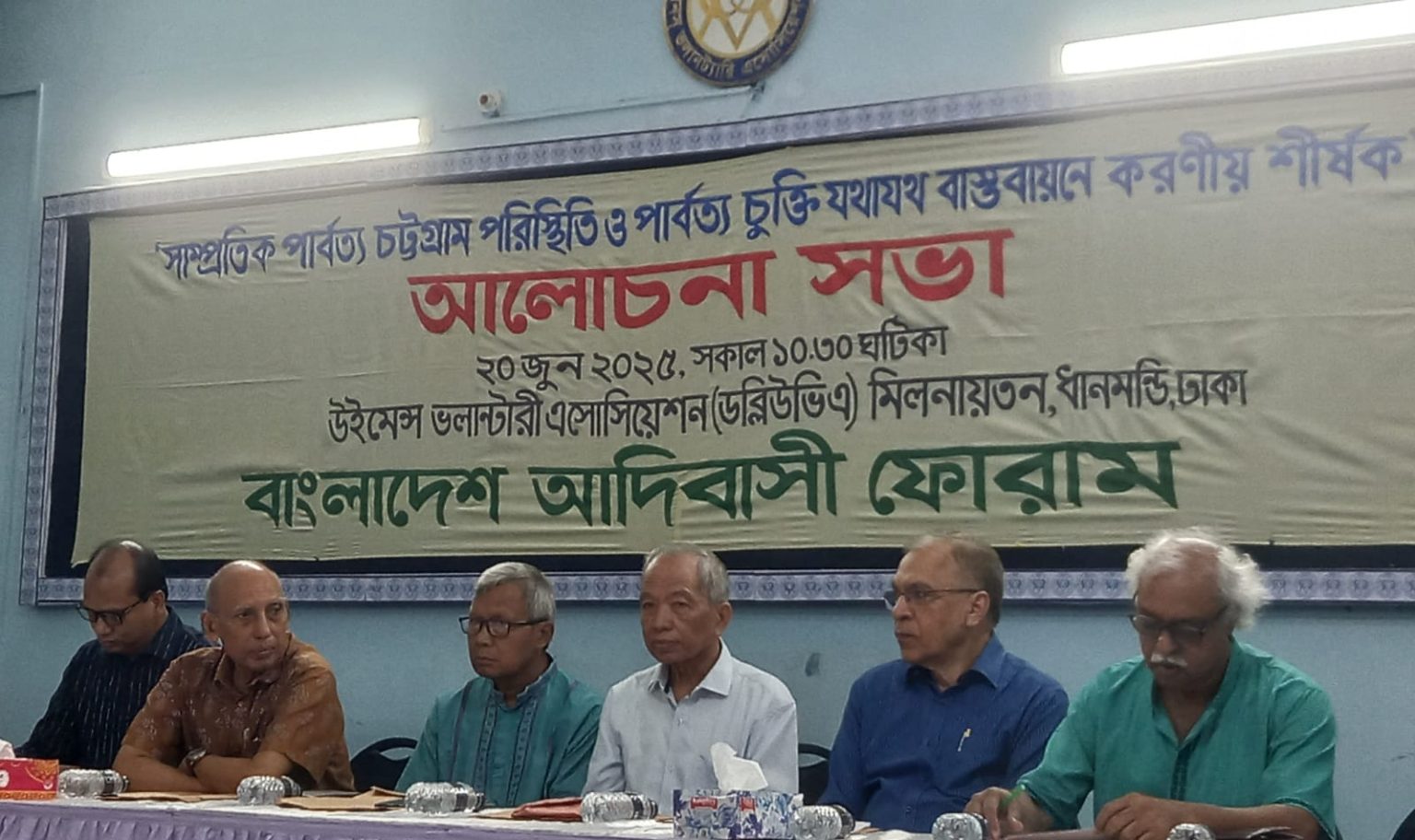Denying the existence of the indigenous people in Bangladesh has consistently served the interests of successive governments, said Dr Iftekharuzzaman, executive director of Transparency International Bangladesh (TIB), at a discussion in Dhaka on Friday.
“Every government benefits from the narrative that there are ‘no indigenous people in Bangladesh’. There appears to be a consensus across regimes to keep these communities at a lower tier within the constitutional framework,” he said.
He was speaking at a discussion on the hill situation and the way forward in implementing the peace accord, organised by the Bangladesh Adivasi Forum at the Women’s Voluntary Association (WVA) auditorium in Dhanmondi.
Addressing the session, Ushatan Talukder, vice-president of the Parbatya Chattagram Jana Samhati Samiti (PCJSS), claimed that the interim government has continued the repressive policies of previous administrations.
“The hill people have been betrayed over the implementation of the peace accord,” said the former guerrilla leader.
He also demanded the indigenous quota in government jobs be increased from one to five per cent, asserting that “their demands are rooted in the preservation of their land and national identity.”
Indigenous rights activist Satej Chakma delivered the keynote presentation while Gajendranath Mahato, joint general secretary of the Bangladesh Adivasi Forum, delivered the welcome remarks.
He reviewed the status of the peace accord’s implementation over the past 28 years. “Despite the accord, peace remains elusive in the Chittagong Hill Tracts due to the absence of proper civilian administration,” Mahato opined.
Meanwhile, Bangladesh Adivasi Forum Vice-President Ajay A Mree urged the interim government to lay out a concrete roadmap for fully implementing the accord.
Other speakers at the event included Ruhin Hossain Prince of the Communist Party of Bangladesh, indigenous leader Sanjeeb Drong, and Shamsul Huda of Association for Land Reform and Development.
The speakers collectively called for renewed political will and inclusive policy frameworks to address long-standing grievances of indigenous communities and ensure full implementation of the 1997 Chittagong Hill Tracts Peace Accord.


